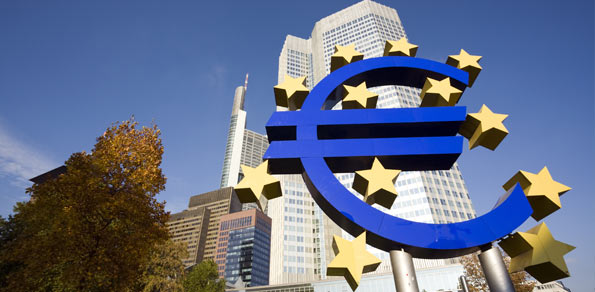Just a short while ago the view was that the May ECB meeting would be a non-event. The meeting is scheduled to take place tomorrow in Barcelona. While we don’t expect the ECB to take new measures, economic and political developments have put the focus on the ECB once again.
Although, it seems that they do crave headlines. The hopes of the ECB that their far-reaching liquidity measures would calm the markets and appease political leaders have disappeared unexpectedly fast.
The question is whether Mr. Draghi will keep the door open for more easing?
Markets think he will, for the case the economy would sharply slow further or market tensions would increase substantially. However, the European Central Bank won’t be very fast in taking more action, as they don’t want to give politicians the coverage to stand aside and abstain from taking crisis fighting measures themselves.
On the contrary, he will put the ball in the camp of the political leaders, partly as some prominent members of the ECB council pleaded only recently that the ECB should refocus on its mandate, keeping inflation in check. It would be odd to be seen one month later favoring growth over inflation.
Last month, the ECB Statement was unexpectedly hawkish, even if ECB President Draghi’s comments at the press conference were sometimes at odds with it. The ECB was less concerned about growth, but some policymakers were concerned about inflation.
The combination of the statement and the comments suggested that the ECB would stay sidelined for longer. The ECB still anticipated a moderate recovery, even if it continued to see downside risks for growth.
It seemed that the ECB thought their past aggressive actions (two rate cuts, two 3-year LTRO tenders and a broadening of the collateral rules) were working and consequently it was time to devote more attention to inflation.
Two pieces of eco news, the April PMI’s and the M3 money supply/ECB lending survey, have sounded the alarm bells, probably also in Frankfurt, and suggest that the (small) turn in ECB policy thinking might have been premature Business sentiment deteriorated sharply in April which puts the bottoming-out scenario, followed by a gradual recovery, into question.
The EMU PMI dropped to 46 from 47.7 for the manufacturing sector and to 47.9 from 49.2 for the services sector. These are steep declines to levels that point to an intensification of the, until now mild, recession instead of suggesting a recovery.
Of course, one month data don’t make a trend and seasonal adjustment issues might have interfered, convincing the ECB to wait for more data before making up their mind on the economic outlook.
Nevertheless, Mr. Draghi in a speech before parliament stroke a more downbeat tone and dropped his previous references to an expected gradual recovery this year The ECB bank lending survey and the M3 money supply figures should also be an ECB concern, maybe even more than the growth figures, as the monetary developments are a (more) direct responsibility of the ECB.
In Q1, banks still tightened their credit standards, albeit at a much slower pace than in Q4 of 2011. That’s the “good” news, maybe due to the ECB’s 3-year LTRO tenders. The bad news is that demand for loans is shrinking.
Similarly, the M3 money supply figures show that money supply is re-accelerating, but loans to the private sector are declining in value on a monthly basis, resulting in a slowing Y/Y growth of only 0.6%.
The ECB targets inflation, but it, of course, works via influencing the monetary aggregates, on which its actions have a direct impact. The divergences between money supply and HICP inflation shouldn’t be a too-big-concern, given the monetary and economic developments.






Comments are closed.